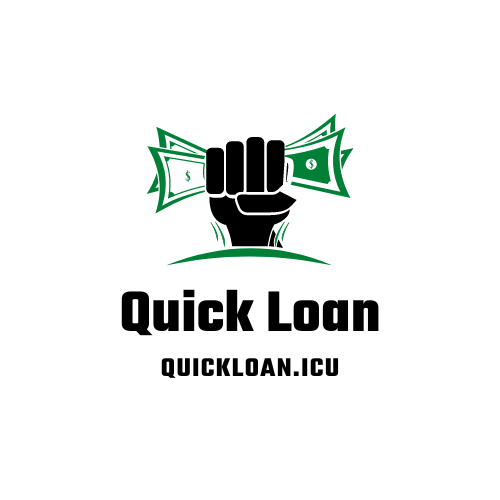
Understanding Quick Loans for Business
When it comes to running a business, having access to quick and reliable financing can make all the difference. Whether you need funds to expand your operations, purchase new equipment, or manage cash flow during a slow period, a quick loan can provide the financial support you need.
What is a Quick Loan?
A quick loan, also known as a fast loan or instant loan, is a type of financing that is designed to provide businesses with immediate access to funds. Unlike traditional bank loans that may take weeks or even months to process, quick loans are typically approved and disbursed within a short period of time, often within 24 hours.
Quick loans are usually offered by alternative lenders, such as online lenders or fintech companies, who specialize in providing fast and flexible financing solutions to small and medium-sized businesses. These lenders often have streamlined application processes and use technology to assess creditworthiness, allowing them to make quick lending decisions.
Why Choose a Quick Loan for Your Business?
There are several reasons why a quick loan may be a suitable financing option for your business:
- Speed: As the name suggests, quick loans offer a fast and efficient way to access funds. This can be crucial when you need immediate financing to seize a business opportunity or address an urgent financial need.
- Convenience: Quick loans are typically available online, allowing you to apply from the comfort of your office or home. The application process is often simple and straightforward, requiring minimal documentation.
- Flexible Terms: Many quick loan providers offer flexible repayment terms, allowing you to choose a loan term and repayment schedule that aligns with your business’s cash flow. This can help you manage your finances more effectively.
- Accessibility: Quick loans are often available to businesses with less-than-perfect credit scores. While traditional lenders may require a high credit score or collateral, alternative lenders are often more willing to work with businesses that have a strong revenue history.
Types of Quick Loans
There are several types of quick loans available to businesses:
- Short-Term Loans: Short-term loans are typically repaid within a year or less. They are ideal for businesses that need immediate cash flow support or have a specific short-term financing need.
- Invoice Financing: Invoice financing, also known as accounts receivable financing, allows businesses to borrow against their outstanding invoices. This can help improve cash flow by providing immediate access to funds that are tied up in unpaid invoices.
- Merchant Cash Advances: Merchant cash advances are a type of financing where a lender provides a lump sum payment in exchange for a percentage of the business’s future sales. This can be a suitable option for businesses with fluctuating sales volumes.
- Line of Credit: A line of credit is a revolving credit facility that allows businesses to borrow up to a predetermined limit. This provides businesses with flexibility, as they can borrow as much or as little as they need, up to the approved limit.
How to Apply for a Quick Loan
Applying for a quick loan is a relatively simple process. Here are the general steps involved:
- Research and Compare Lenders: Start by researching and comparing different quick loan lenders. Look for lenders that offer competitive interest rates, flexible terms, and positive customer reviews.
- Gather Documentation: Before applying, gather the necessary documentation, such as financial statements, tax returns, and bank statements. Different lenders may have different requirements, so be sure to check the specific documentation needed.
- Complete the Application: Fill out the online application form provided by the lender. You will typically need to provide information about your business, such as its legal structure, industry, and revenue.
- Submit Supporting Documents: Upload the required supporting documents, such as financial statements or tax returns, as requested by the lender.
- Review and Accept the Loan Offer: Once your application is reviewed, the lender will provide you with a loan offer. Carefully review the terms and conditions, including the interest rate, repayment schedule, and any fees associated with the loan. If you are satisfied with the offer, accept it.
- Receive Funds: After accepting the loan offer, the funds will be disbursed to your business account. Depending on the lender, this can happen within a few hours or up to a few business days.
Factors to Consider When Choosing a Quick Loan
Before applying for a quick loan, it’s important to consider the following factors:
- Interest Rates and Fees: Compare the interest rates and fees charged by different lenders to ensure you are getting the most competitive offer. Keep in mind that quick loans may have higher interest rates compared to traditional bank loans due to their fast and accessible nature.
- Repayment Terms: Review the repayment terms offered by the lender. Consider whether the loan term and repayment schedule align with your business’s cash flow and financial goals.
- Loan Amount: Determine the amount of funding you need and ensure that the lender offers loans within your desired range. Some lenders may have minimum or maximum loan amounts.
- Lender Reputation: Research the lender’s reputation and customer reviews to ensure they have a track record of providing reliable and transparent financing solutions.
- Customer Support: Consider the level of customer support provided by the lender. It’s important to choose a lender that is responsive and helpful throughout the application and repayment process.
Conclusion
Quick loans can be a valuable tool for businesses in need of immediate financing. With their fast approval process, flexible terms, and accessibility, they provide a convenient solution for addressing short-term financial needs. However, it’s important to carefully consider the terms and conditions offered by different lenders to ensure you are getting the best possible deal for your business’s unique requirements.
Remember to always assess your business’s financial situation and repayment ability before taking on any form of debt. A quick loan should be used responsibly and as part of a well-thought-out financial strategy to support your business’s growth and success.
